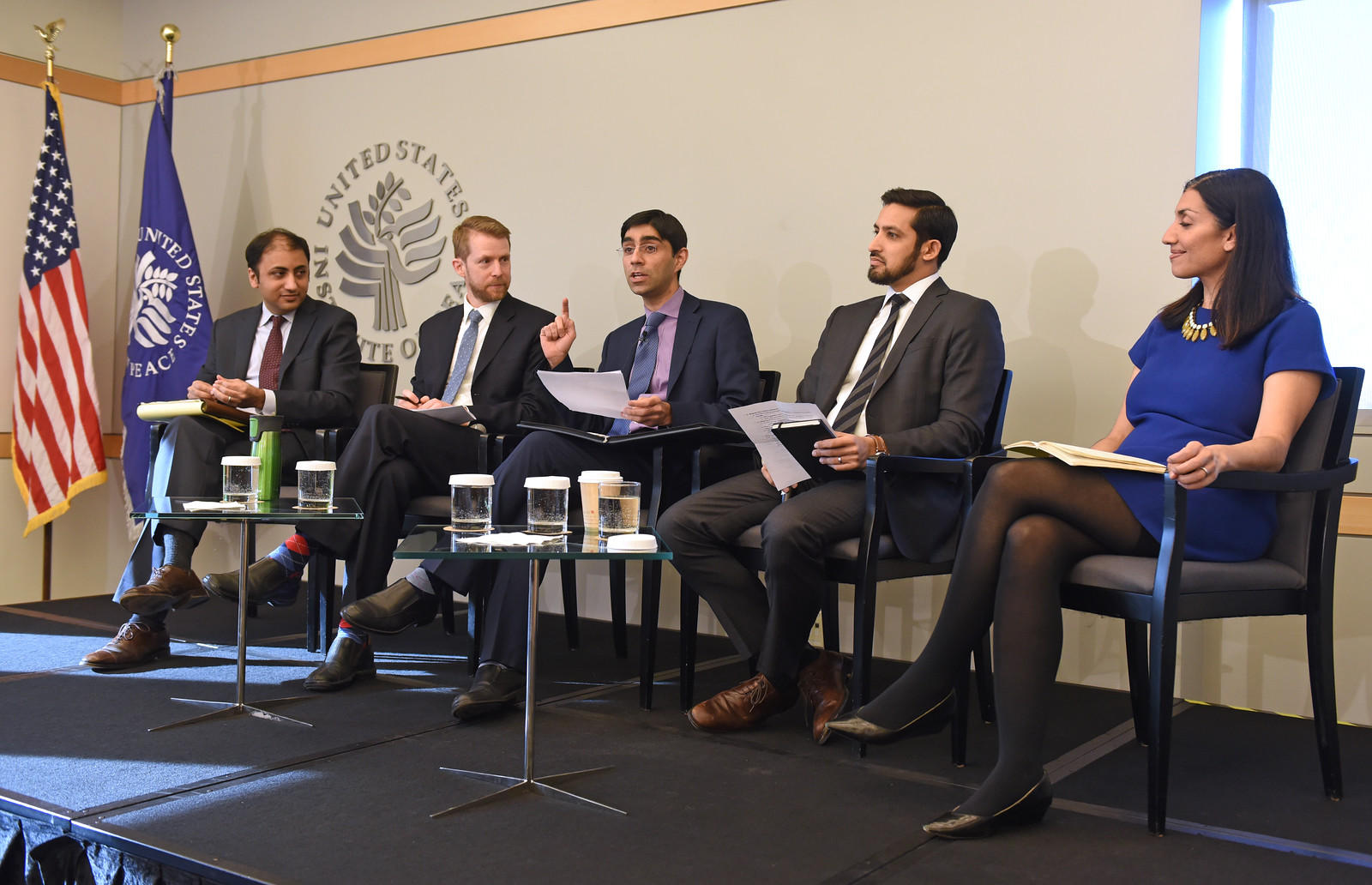India and Pakistan: What Path to Peace?
Read the Event CoverageAttacks by militants in Kashmir, clashes during public protests and military skirmishes across the Line of Control have escalated tensions between India and Pakistan over the past year to a dangerous degree. The resulting military and civilian casualties fuel a volatile situation between these two nuclear-armed neighbors that poses mounting risks for regional security as well as long-term U.S. interests for peace and stability in South Asia. On December 19, USIP hosted a discussion with a diverse group of South Asia experts on the crisis and the potential U.S. diplomatic role under the next U.S. administration.

South Asia didn’t feature prominently during the U.S. presidential campaign, but the U.S. holds important strategic interests on counter-terrorism, trade and development in the region. So far the U.S. has played an important role in de-escalating tensions between India and Pakistan.
Panelists discussed the dangers of a persistently hostile India-Pakistan relationship, and what policies the next U.S. administration could pursue to manage crises and promote greater peace and security in South Asia.
Speakers
Shamila Chaudhary
Senior Advisor to the Dean, Johns Hopkins School of Advanced International Studies
Toby Dalton
Co-Director, Nuclear Policy Program, Carnegie Endowment for International Peace
Sadanand Dhume
Resident Fellow, American Enterprise Institute
Sameer Lalwani
Deputy Director, South Asia Program, Stimson Center
Moeed Yusuf, Moderator
Associate Vice President, Asia Center, U.S. Institute of Peace



